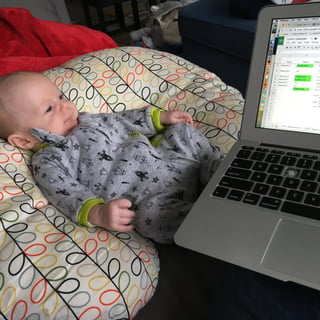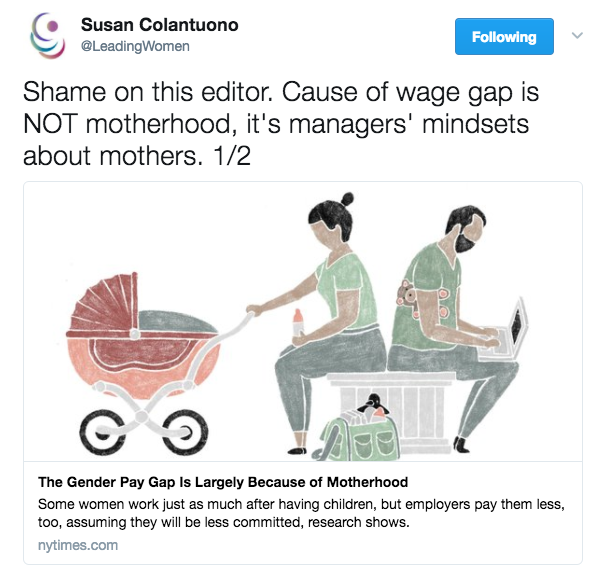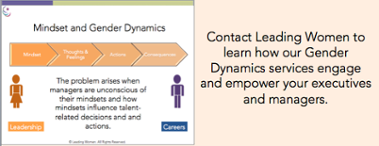Mother's Day was this past weekend in the United States (and in many other countries as well) and my husband took our kids to the playground in the afternoon so I had few minutes by myself to read the paper - a luxury most parents will understand - when I stumbled upon an opinion piece in the New York Times entitled "The Gender Pay Gap Is Largely Because of Motherhood." This piece, while attempting to highlight the gender pay gap, completely missed the mark.
It isn't necessarily a problem with women prioritizing family, but rather with managers' expectations that they will and companies allowing managers to create unequal pay situations. Manager's mindsets strike again!

Research shows that managers are less likely to approve flextime for women because they have the mindset that women are more likely to use this time for personal rather than professional reasons. Which as a full-time, remote, work-from-home parent, and a woman, I can debunk completely. {Photo Left: Leading Women's newest team member helping mommy map out upcoming blogs}
And how about the recent study which states "well-off" women being less likely to get an interview? It's not because they didn't apply or were not equally qualified for the job, but because hiring managers declined to interview these women because "they believed they were the least committed of any group to work a demanding job."
But even the most well intentioned manager can fall prey to their entrenched mindsets. A thought like "She wouldn't want that assignment, she has young kids" is common and may seem thoughtful and nice, but it is damaging. Did the manager ask the employee if she was up for the assignment? No. Being unaware of the motherhood penalty dynamic (with its underlying unexamined assumptions) controls the decision - not the manager. As a result, women in general (and mothers in particular) fail to advance at rates equal to men.
A great example of how to adjust mindsets comes from our blog post "Frailty, thy name is woman." In the blog, Leading Women CEO, Susan Colantuono, takes a good look at the latest LeanIn / McKinsey's research and pulls out excerpts from the "Women face an uneven playing field" section. She then takes all of the points attributed to women and swaps them to be attributed to management - the points are the same, but the message changes completely.
| Faults Attributed to Women | Same Faults Attributed to Management |
|
|
|
|
|
|
|
|
|
|
Our gender dynamics work with executive teams and others makes the relationship between the actions of managers and the unlevel playing field crystal clear. The advantage in doing this is that action-oriented leaders discover that they can do something to close the gap!
If your efforts to close the leadership gender gap would benefit from the support of high-impact and action-oriented education for managers, contact us to discuss Leading Women's unique approach to closing the leadership gender gap.
Lead ON!
Samantha








